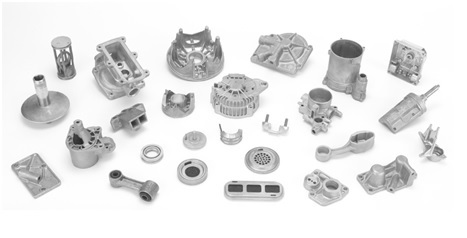Die casting is a highly important process in the manufacturing industry. It is a method used for producing metal parts with high precision and complexity. This article will delve into the details of die casting, its advantages, applications, and the future prospects of this critical manufacturing process.
Die casting involves injecting molten metal into a mold, also known as a die, under high pressure. The die is created with the desired shape of the final product. The molten metal, typically aluminum, zinc, or magnesium, is then forced into the die, where it solidifies and takes the shape of the mold. Once the metal cools and hardens, the die is opened, and the finished part is removed. This process can be repeated thousands of times before a new die needs to be created.
One of the main advantages of die casting is its ability to produce complex parts with high precision. The molds used in die casting can be incredibly detailed, allowing for intricate designs and tight tolerances. This makes die casting suitable for manufacturing parts with complex geometries, such as engine components, automotive parts, and electronic enclosures. Furthermore, the high pressure used in die casting ensures that the final product has a dense and uniform structure, resulting in excellent mechanical properties.
Die casting also offers cost-effective production. The process is highly efficient and can produce a large number of parts in a short amount of time. The rapid cooling of the molten metal inside the die allows for quick production cycles, making die casting ideal for high-volume manufacturing. Additionally, die casting reduces the need for secondary operations, such as machining or welding, as the parts produced are already near net shape. This not only saves time but also reduces material waste.
The applications of die casting are vast and diverse. It is widely used in the automotive industry for manufacturing engine blocks, transmission cases, and suspension components. The aerospace industry relies on die casting for producing lightweight parts with complex geometries, such as turbine blades and structural components. The electronics industry benefits from die casting for manufacturing housings and heat sinks. Die casting is also used in consumer goods, such as kitchen appliances, power tools, and even toys.
The future prospects of die casting look promising. As technology advances, new materials and alloys are being developed, expanding the possibilities of die casting. The demand for lightweight and energy-efficient components in industries such as automotive and aerospace is driving the development of advanced die casting techniques. Additionally, advancements in automation and robotics are enhancing the efficiency and productivity of the die casting process.

However, challenges also lie ahead. Environmental concerns and regulations push for more sustainable and eco-friendly manufacturing processes. Die casting, like any other industrial process, generates waste and consumes energy. Therefore, it is crucial for die casting manufacturers to adopt sustainable practices, such as recycling and reducing energy consumption, to meet the demands of a changing world.
In conclusion, die casting is a critical process in manufacturing, offering high precision, cost-effective production, and a wide range of applications. Its ability to produce complex parts with intricate geometries makes it indispensable in various industries. With ongoing advancements and the need for sustainable manufacturing, die casting will continue to evolve and play a crucial role in shaping the future of manufacturing.
-

- Slitina hořčíku Thixomolding pouzdro na šlehač
-

- OEM komponenty a díly pro tlakové lití
-

- CNC machined parts Steering bracket
-

- Díly a komponenty na kolo z hořčíkové slitiny pro dětská kola
-

- Tixomulační lití z hořčíkové slitiny odlévání dílů UAV
-

- Custom-made die casting parts&comopnents for bicycle suspension fork for MTB

 0086-750-5616188
0086-750-5616188 +86 13392089688
+86 13392089688 sales@zhongmei-tech.com
sales@zhongmei-tech.com







